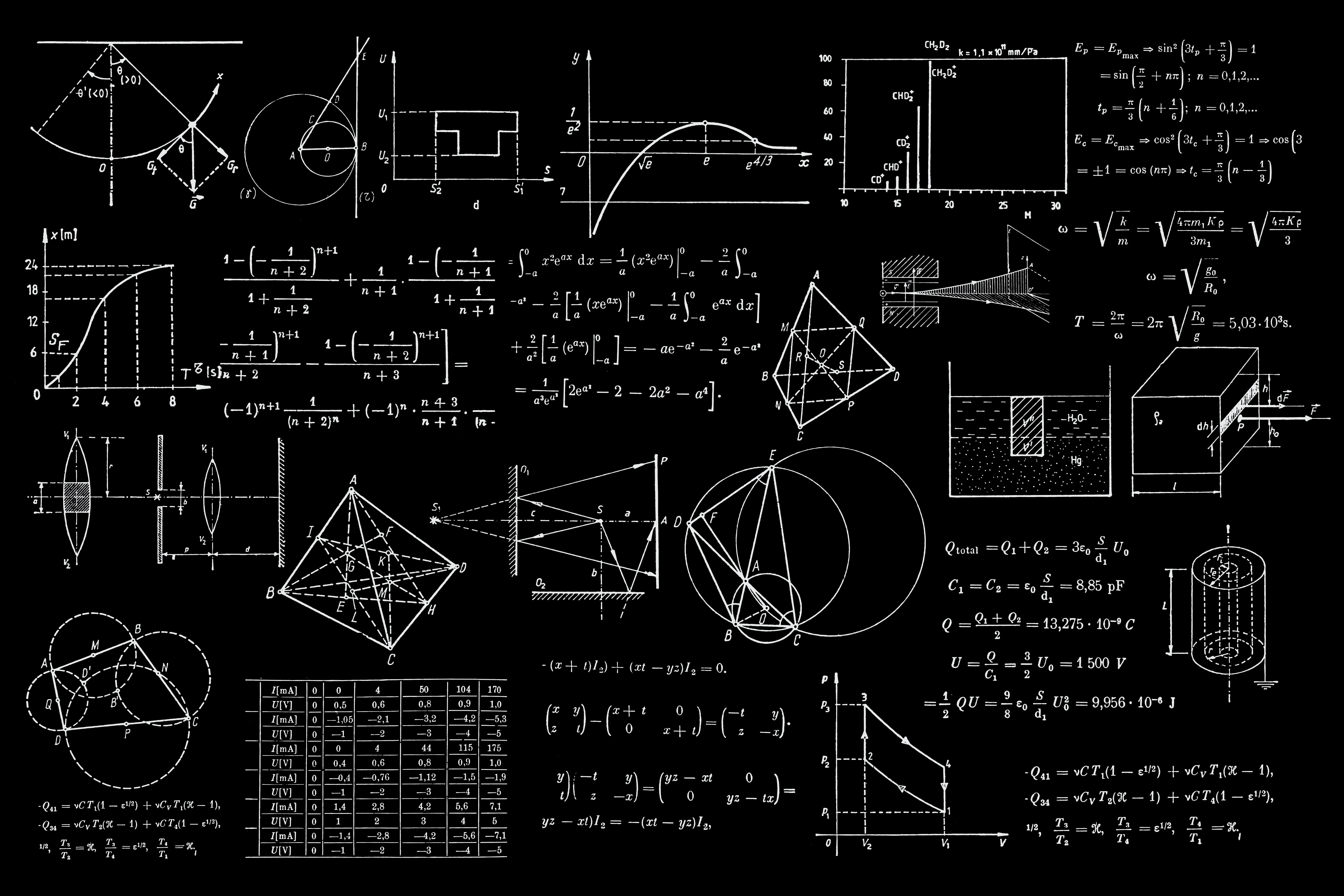Australian pupils are not doing as well in mathematics as some of our neighbouring countries. According to research into mathematics learning trends around the world, our students fall decidedly short of the mark. Pupils in science programs in Australian schools are doing better than ever. Oddly, the same can't be said for our math programs.
The phenomenon isn't limited to kids and teenagers. According to an OECD study, Australian adults are ranked fourth in the world (of the participating countries) for literacy. However, we only reach 13th on the numeracy rankings. This can make basic life skills like filing taxes or even paying monthly bills a nightmare for those affected. Why is this happening?
According to some experts, math teachers in our school systems are the problem. Especially those who teach at primary levels. They don't have a lot of experience teaching and likely don't have more than an undergraduate degree. Or maybe they simply don't like teaching mathematics.
These factors have a negative effect on learners' enjoyment and progress in math. It tends to give students a lifelong aversion to anything math-related. As adults, they have to rely on calculators. And that's if they don't avoid mathematics tasks altogether. What does all this mean in the big picture of things?

Why is studying Maths so Important?
Across Australian state schooling, this subject is compulsory for pupils from grade 1 through Year 10. It's easy to see the sense in learning arithmetic. However, between trigonometry and calculus, some pupils might not see how advanced mathematics could be useful in real life. Maybe the trouble lies in how the math curriculum is designed.
Calculation, geometry and algebra are abstract concepta with real-world results. Most people don't 'see the math' in the roads they walk on, the buildings they occupy or the clothes they wear. Ok, you might argue. But no everyone wants to build roads or houses, or make clothes. Let engineers and tailors do all that. Why should I care about the invisible mathematics it takes to build or make things?
Let's take it closer to home, then. Food portions and even the ingredients that contribute to making food savoury rely on mathematical concepts. Putting too much salt in the soup'll cause you to chuck it down the drain instead of down your throat. Mathematically stated, your proportion of salt is greater than the proportion of other ingredients. It's the same with cake batter. Too many eggs will make it too runny. Again, it's a matter of ratio and proportion.
Beyond such real-life applications, not learning mathematics has profound negative impacts on our ability to manage our lives. Not just because it's too hard to budget our money or figure out if what we're buying is a good value. Let's have a look at why it's so important to have a developed understanding of different types of mathematics.
Analytical thinking: When we study and solve equations, we start to develop important analytical skills. Solving problems involves looking at the different parts of an equation, seeing how the components work together and how to reach the correct answer. These are essential problem-solving abilities and the more we practice the better we can become. The younger we are when we start building analytical skills, the more competent and confident we are as adults.
Mathematics helps us understand the world: understanding how quickly a river flows could save lives. Knowing why kicking a ball with varying degrees of force puts it in a certain place helps us know about strength and power. This subject helps us figure all that out. Studying these principles can bring mathematics into the real world. Students could appreciate things they might have never noticed.
It's a universal language: Most places in the world use the same set of characters to represent numerals. Even two people who can't speak the same language can work together on the same math equations. In this way, math can connect people from around the world. In that sense, mathematics is like music - which, by the way, is another universal language. And music itself is mathematical.
We use it every day: We may not notice that the skills we pick up in math classes apply to a variety of real-world situations. If you have a recipe for 8 but you're only making it for 4 people, you'll need to use some fractions. Working out how much a piece of clothing works out to with 40% off involves understanding of percentages.
It's important for a range of careers: Other than the most obvious things like engineering and economics, a range of jobs need mathematics. A policymaker needs to know about trends in population, which involves reading data and statistics. Nutritionists need to be able to calculate the amount of energy a certain diet could provide their client. Even working as a cashier in a shop calls for strong math skills. If yours are lagging, you could benefit from lessons with a maths tutor.
Think About Maths Online Learning

If the cronavirus pandemic taught us anything, it's that web-based learning is more than a handy school alternative. Online teaching tools such as interactive whiteboards and filesharing made lockdown learning possible for students around the world. But plenty of tutors have worked as mathematics teachers for over a decade. Ever since the technology - webcams and video conferencing became sufficiently developed, tutors have been teaching mathematical concepts (and other subjects) remotely.
Superprof has large contingent of math teachers scattered across Australia. They stand by, ready to aid every reluctant math learner, from children to adults, to start enjoying this subject. Their aim is to guide pupils struggling with math, including helping with homework and exam preparation. Whether it's explaining complex concepts or working on difficult trigonometry problems, Superprof Maths tutors Sydney can't wait to work with you.
Every Lesson is Individually Planned
The best tutors aim to lead their pupils to understand the math concepts presented in every lesson. That suggests that they must know which lessons to prepare for. Your tutor won't just throw a bunch of worksheets at you. They'll consider your preferred learning style and search for materials that fit you best.
When you contact a math tutor for the first time, count on having a long conversation with them. They'll ask you if you like to take a lot of notes, if you prefer to see how things work and how you feel about lectures. They'll also ask which aspects of mathematics most stymie you. And then, they'll get to work.
For example, you might prefer to see how to solve equations rather than listening to an explanation. They'll find videos to play during your lessons. Or you might want to work problems out yourself under their guidance. Count on them to make ample use of interactive whiteboards.
You and your tutor will get to know each other lesson by lesson. It might take a few sessions together before you both will hit your stride. But, soon, your tutor will be able to explain mathematical concepts in ways that make sense to you. They'll also identify any gaps in your knowledge and work to get you to the level you need to be.
No Set Curriculum
Your school teachers teach the material they're given. School curricula are imposed on them, too. And they don't have a lot of wriggle room. Teachers, at all levels of education from primary to university, have to abide by set timeframes for studying and assessment. This curriculum design is really not a whole evil plot to foil less adept learners, though.
Curricula and exams are meant to get pupils through set levels by the end of the year. However, there can be some pretty big disadvantages to this method of teaching. For instance, in large classes, some pupils may grasp different concepts faster than others. Maybe you understood Pythagorean Theory really easily, but you just can't seem to get the hang of calculating probabilities.
This is a common happening; I remember it from my school days. It can be extremely frustrating when teachers keeps moving ahead while you're still stuck on the point before. This fast-paced learning environment can make students feel unprepared when it comes to taking a test. Indeed, it may eventually discourage them from even trying to keep up.
With a maths tutor online, this can all change. Your tutor will supplement your learning by expanding on the concepts you're studying in class. They might present the information in different contexts or use different media to make the concepts easier to understand. Whatever it takes, they won't move on until you and they are completely confident of your mastery.
Teachers know when their learners have really gotten the hang of something. Because your maths online learning is one-on-one, they can really spend the time it takes to allow you to nail every aspect. That will leave you feeling confident. And who knows? You might even start enjoying mathematics.
An Online Maths Course to Ready for Exams
Every year, across Australia, learners in the final year of school get ready to take their final exams. Well, those who select mathematics as an exam subject do. According to the Australian Mathematical Sciences Institute (AMSI), around 80% of all Australian Year 12 students sit exams in at least one math subject. If you are one of those students, you might worry about scoring well. Taking web-based preparatory classes would be a good idea.
Let's make clear that tutors in Australia don't have to have any formal qualifications. Nevertheless, most tutors have made it at least through high school; some very recently. You might find greater success revising for exams online with a first-year university student. They've just undergone the same ordeal you're preparing for. They're familiar with the examinations you'll soon be sitting.
Of course, examinations can change from state to state. Before engaging the best internet-based Maths tutor for your needs, you should make sure what exams that tutor specialises in. To be sure, every tutor (at least two levels higher than you) can explain math concepts. They can even share test-taking strategies. But if your aim was to have a tutor familiar with the materials you need to revise from,
It's not only school students that need to prepare for math exams. Are you planning on taking a teachers' training course? You'll be required to take the Literacy and Numeracy Test for Initial Teacher Education Students (LANTITE). This exam will be scheduled for before the end of your second year of study.
Preparing for this test while also taking a full load of university courses can seem like a daunting task. Luckily, there are some great tutors on standby. They are ready to aid your preparations. That way, you can face any exam with confidence and pass with flying colours!
You can check out the best maths tutor here.
What You Can Learn with Your Maths Teacher Online

Of course, mathematics isn't just addition and subtraction, fractions and ratios. Every Australian state curriculum includes complex math concepts like algebra and statistics. Everybody is pretty much fine with the basics. It's only when things go into a deeper dive that math starts becoming scary. Fortunately, maths online learning can lead you to find your way through every associated topic.
Arithmetic
This is as basics as mathematics gets. Arithmetic deals with the real number systems. We learn arithmetic in our earliest school years. Pupils study concepts like addition, subtraction, long division, percentages and more. These skills form the foundation every other mathematical concept is built on.
Geometry
This is one that we usually start getting to know in primary school, using blocks, legos and more. We examine the features of 3D shapes, looking at the different faces, angles and measurements. While this might seem basic at first, it can be important in areas like product design and architecture.
Algebra
This sub-discipline usually sends students running for the hills. Algebra is nearly 4,000 years old; it deals with different variables and the rules for calculating them. Basically, we use it when we don't actually know the numbers in the equation, so we use letters to represent them. This is where knowing arithmetic concepts comes in handy. Pupils have to know the order of operations - parentheses, exponents, multiplication, division, addition and subtraction to master algebra. But it's easy to remember the order of operations; just think PEMDAS.
Calculus
Another subject most learners dread! Calculus is the study of how things change, like how quickly things move in real time. Calculus has applications in everything from astronomy to engineering and economics.
Statistics
This discipline is usually taught at the end of high school and at university. Statistics concerns the collection, organisation, analysis and interpretation of large amounts of data. It can be extremely helpful in everything from predicting consumer trends to analysing the effects of medical treatments.
Even if you struggle with just one or two of these interrelated topics, you might consider learning with a Superprof maths tutor. You might select a tutor who specialises in the topic that troubles you the most. Conversely, you could revise for exams with a calculus instructor online who is well versed in all of these topics.
Note that, after asking you where your personal pitfalls are, they may present a general mathematics quiz to get a better idea of where you're at. You might beat them to the punch. You can find a range of such quizzes to check for gaps in your mathematics knowledge.
Open Colleges Australia provides a numeracy test that tests your readiness for certain university and Technical and Further Education (TAFE) courses. Different newspapers like the Guardian also provide quizzes to see how you rank against some of the best students in Australia. Trying out one of these tests without the pressure of an exam might show you how much you actually know about mathematicss. Who knows, you might even surprise yourself!

Maths Online Learning v. In-Person Courses
Some people might believe that it's much easier to learn in a classroom or through in-person, one-to-one tutoring sessions. Flashing back on the COVID lockdowns, we see that's not necessarily so. Granted, distance classes can be frustrating when your internet connection isn't stable or fast. You might forget to turn up your speakers, turn on your microphone or camera. None of that means there are no advantages to online courses.
Lessons Where You're Comfortable
Some pupils feel stressed or nervous when they're in official environments like schools or colleges. Remote learning allows you to be comfortable in your environment. You'll likely feel less pressure, which allows you to relax and focus on learning.
You can also forget about stressful rides on public transport. If you're old enough to drive yourself around, you know how frustrating it can be to find a parking spot. And then, your stress levels soar, knowing that you're probably going to be late for class. With a web-based calculus instructor, all you need to do is sit down and connect.
Oh, wait! Did you bring your books, notepad and writing instruments? Forgetting these basic school supplies is a top reason of student stress. But when you're at home, learning via the internet, you won't have to worry about leaving your books at home or forgetting to bring a pen. You'll always have all the materials you need. And your calculation coach can send you any extra materials to print or save well before the lessons starts so you can keep your learning organised.
Learn When You're Ready
Most students hate morning classes. Whether high school or university learners, research confirms that students are not typically morning persons. We'll leave aside questions about why school has to start so early. We want to point out that web-based learning takes place when you are ready. Within limits, of course. Your instructors probably won't be happy meeting you at midnight.
Technology Integration
As we'll discuss a little later on, there are so many amazing websites and tools that teach mathematics all over the internet. The problem is, in a traditional classroom it can be difficult to give every pupil in the class the opportunity to engage with them. Depending on your school district, it often involves booking unwieldy computer banks weeks in advance.
Maths online learning is different. Every pupil has access to their own connection and computer, which they're already familiar with. There are no issues with sharing or setting up. A web-based tutor can take advantage of tools like Quizlet, Socrates and more. That makes the learning experience not only more varied and engaging but also more fun.
Prove You're Committed to Self-Improvement
There's nothing prospective employers love more than a job candidate who can prove their commitment. Whether learning new skills or keeping their skills sharp; even pursuing professional development taking lessons by internet works. In more ways than one, at that!
Finding the time to complete distance learning courses can be tricky but my Maths tutor Brisbane managed to do it. If you're equally successful, you can show your employer that you have these stores of knowledge. Along the way, you'll also prove that you're organised and have great time-management skills.
Find about the most effective maths tutors near me in Adelaide here.
Free Maths Online Learning

Learning isn't only about the hours you spend in class. You can also grow your knowledge by taking advantage of the excellent, free maths resources available across the web. These include anything from instructional videos to daily challenges. You can find them for all ages and stages of instruction. By getting to know some of these sites, you're more likely to feel supported both in and out of your classes.
Materials for Children
A parent may sometimes feel that they don't have the skills to guide their children through calculation. A while has passed since they studied fractions themselves. Even basic equations can be daunting, to say nothing about long division.
Finding these types of materials is such a good way for any parent to let their kids have a great time while learning. The kids get smarter and mum and dad have peace of mind. Doesn't ever caregiver want to know their kids are learning something instead of just playing around? Kids love to learn, and there's no better way than through games and videos.
1. Math Playground
This website is for children aged 6-11 years old. It features games that allow children to review what they learned in class. They may even go beyond their school lessons. The page's activities are all separated into different grades, from 1- 6. They're further divided into different categories like expressions and equations, the number system or logic and problem-solving.
All of these different categories make it easy to choose games that aids kids build the skills they need. And it doesn't stop there. The site features great animations to explain everything from bar graphs to skip counting. This site can be useful for any parent who might need to jog their memory a little so that they can assist with homework. Math Playground has stories, visual materials and even a blog!
2. Oxford Owl
You might recognise Oxford University Press. They make of the majority of our schools' textbooks. They also have some wonderful tools designed to make learning more engaging. Oxford Owl separates all of their learning resources by age. Even though their materials are based on the UK school system, caregivers can easily find the activities they need. Apart from games, you'll find a huge selection of printable worksheets that you can use on a rainy day, as well as ideas for sweet projects you can do as a family.
3. ABC Education
Our trusty ABC has been teaching kids since the early days of Playschool. Today, their web-based learning materials are no less complete, accessible and satisfying. The ABC Education website features hundreds of games and activities, all been created in line with Australian curriculum standards. These are material that are carefully curated to challenge kids in a specifically Australian context. Animations, games and printables are all available for free.
Today's children need something beyond books to learn with. Parents and educators can make learning about mathematical processes so much more exciting and engaging. It can contextualise information for kids so they can relate to it in a more memorable way. especially for young children. Hopefully, it can even kickstart an ongoing passion for mathematics.

Great Maths Websites for Adults
Who said web-based learning is only for kids? Teenagers and adults need to know math too. And want to enjoy themselves while doing it as well.
Of course, there are classic pen and paper puzzles that we can do to work our numeracy and problem-solving muscles. Activities like Sudoku, Kakuro and Alphabet Code games are a great, cheap way for adults to get in some basic training every day. However, there is also a range of excellent, online learning tools designed for older learners. They allow older pupils to get their heads around tricky concepts, and practice until they feel confident. Here are a few of the most popular sites to check out:
1. The Khan Academy
This website aims to offer free and accessible world-class teaching through video teaching. The site boast expert-created materials. Those presenters also have experience teaching. Anyone can take classes in all types of calculation, from basic numbers for young pupils, to calculus for more advanced years. Even educators can use the resources for engaging classes, worksheets and tests.
2. BBC Skillswise
If you're looking for video classes with simple explanations, as well as matching worksheets and games, you can't go wrong with BBC Skillwise. This site is specifically designed for adult learners studying on their own. Skillswise's materials are particularly good for those who have lower English literacy levels but want to push themselves.
3. edX
This website offers practice courses in a variety of abilities from some of the best universities in the world. EdX is aimed at more advanced pupils. You might check out Data Science materials from Harvard University, or follow a Massachusetts Institute of Technology - MIT-created probability course. These programs take a more classical learning approach and have a bit of a price tag. But they can give pupils a qualification that looks great on a resume!
Creative and Engaging Phone Apps
Recall this article's introduction, which specified that math scores across Australia are less than stellar. That news isn't all bad; they're low around the world. Thus, any way to improve improve grades and engagement in calculation is welcome. Pupils across the board may enjoy the fruits of app developers' labours. They have used their understanding of the subject, as well as their intuition of what makes a great app to create some excellent revision maths tools. Some are targeted at children; others at teens and adults.
Star Dash Studios
This game is aimed at teens and young adults. It encourages them to notice the value and use of math in everyday life. Set in the film business on a movie set, the player starts as a runner, and needs to complete missions using simple arithmetic. They can keep track of the skills they've learned on their "CV" as they progress through each level, finally becoming a producer.
It's a fun way for pupils to realise that ciphering is not just something static. Sure, they can see in a textbook. But these practical applications, albeit in game form, shows them that mathematics solves problems throughout our lives and work. In quite surprisingly varied ways, at that.
Photomath
Looking for an app to help you with your calculations? Photomath should fit the bill. This app is a Camera Calculator. All you need to do is point your phone camera at any problem or formula that you've written on a piece of paper. It will be able to find a solution. How does that help pupils who need to know how to solve these formulas by themselves?
That's the very best part of Photomath. Once it has solved an equation, it provides a step by step guide for how it got there. This means pupils can see in real time how to solve any problem and learn from their mistakes.
Prodigy: Kids Math Game
As you can probably tell from its name, this app is great for any child who wants to do some extra math work at home. Aimed at grades 1-8, Prodigy allows educators to give homework in the form of games and quizzes. Note that Prodigy is tailored to the US curriculum. However, it's still relevant to Australian pupils.
Doing homework can usually be a drag for both kids and their parents, but no more with this exciting app. It's also excellent for educators as a teaching tool. It offers built-in diagnostic tests to check pupils' skill level and creates progress reports in real time for all learners. You can use it to identify strengths and weaknesses, fill knowledge gaps and, in general, have fun.
Geometry Pad
This useful app was made to advance understanding of geometric concepts. It helps learners engage more easily in class. Pupils can practice how to take measurements and form different shapes. They can experiment with sketches and shapes, making more abstract concepts simple and practical through visuals.
Math Riddles and Puzzles
Designed for ages 18 and older, this app provides a range of different activities to test your IQ. It challenges users to think about math in a different way. The games focus on different areas of math, such as hidden numbers, patterns and geometrical figures. Each level is prepared in the same way as an IQ test and checks pupils' ability to analyse a complex problem.
We all know that calculation can be difficult. And, let's be honest, everyone from schoolchildren doing their homework, to adults filing their taxes profess to hate it. But this isn't because math, in itself, is a boring subject. In fact, it can be exciting and rewarding but pupils are too used to classical (and boring) teaching methods.
Taking advantage of these amazing apps shows learners that solving puzzles can actually be a blast. Brain teasers are fun and Sudoku apps are challenging. Yet, they all mask the fact that they build skills. Players learn how to use numbers in a clever and creative way. Isn't it way better to find Maths resources online instead of wasting hours with your phone staring at Facebook?
Podcasts: Your Maths Teacher Online

We all know that every learner approaches their studies in different ways. Every student needs their own resources to truly excel in this discipline. There are different types of learners in every classroom, each with their own learning preferences. Knowing the type of student you are can be extremely useful in choosing which materials to take your studies further.
Apps and websites are great for some learners while toys like Lego or objects like an abacus can help those whose learning style is more active. But what about learners who take in the most through what they hear? For them, there are podcasts. The podcasts on this list focus on teaching and understanding this complex subject. But they also discuss enjoying your studies, especially with the right maths online learning setup. Podcasts reveal how calculation applies to our everyday lives.
The Math Dude: Quick and Dirty Tips
This one is for anyone who wants to leave behind the painful and confusing memories of their time studying algebra. The Math Dude is the perfect way to improve your understanding of the subject. Featuring heaps of tips and tricks, listening to the Math Dude is wise idea. He explains everything in simple and accessible language.
Breaking Math
If you want to know about the more interesting and complex applications of math in an accessible and fun way, then Breaking Math is perfect for you. Each 45 minute episode covers a particular topic in close detail. That way, you can gain a thorough understanding of each topic addressed. You'll learn fascinating math facts along the way, too.
Women in Math: The Limit Does Not Exist
This podcast is an excellent source of inspiration for young women. Too often, our female math wizards don't really see themselves in the most famous mathematicians of history. Each episode is an interview or a biography of a female mathematician working in the field (and sometimes science). Underrepresented as women are in this discipline, many of this podcasts' 'subjects' broke the mould.
The hosts aim to increase the visibility of the women working in this field today. They want to encourage more women and young girls to get excited about science, technology, engineering and mathematics - STEM subjects. It's a great resource for any parent who wants to inspire their daughters to reach for the stars.
The Secrets of Mathematics
This series of lectures and talks was created by Oxford Mathematics. It aims to demonstrate the power and beauty of calculation in our life. Each episode is hosted by a different expert from a range of fields, science to history, art and more. It focuses on how math can be used in all of these fields to better understand them.
More or Less: Behind the Stats
We see a lot of statistics on the news every day from journalists, politicians, lawyers and more. But have you ever taken a second to think about where this data came from? How they were collected? How trustworthy they are? If your answer is yes, then you should definitely check out More or Less.
This BBC Radio 4 series analyses the applications of probability in our every day lives and considers current affairs data in more detail. They fact-check politics and consider possible reasons for changes in data. Something like the increasing weight of the average newborns and so much more.
The idea of spending your free time listening to people talking about how much they love this subject or explaining complex formulas might have you thinking "No way!". But listening to podcasts, watching video lessons and playing games on your phone are important steps to shifting your relationship with with the discipline.
Actively seeking out these more engaging ways of studying can do so much more. Pupils' studies don't have to revolve around spending hours in front of a black and white page in a textbook. With all of these engaging materials, you can easily improve your abilities without getting bored or frustrated. You can even challenge yourself with tricky problems. You'll soon notice that you focus better because the content is so much more engaging.
How to Find the Best Maths Teacher Online
Learners engage in maths online learning with tutors all over Australia from online tutors in Perth to Melbourne, Sydney. Web-based learning is a thing even smaller cities like Geelong or Parramatta. Just the idea of looking through all of these options can be truly overwhelming. But Superprof makes things so much easier.
You can browse their list of qualified, experienced mathematics tutors from around the country. Superprof tutors support their pupils with anything from homework revision to exam preparation. They provide materials to guide any student to reach their true potential.
Before you start looking for your perfect tutor, you should know exactly what you're looking. Did you want an online tutor or in-person tutoring sessions? How often would you meet for lessons and what's your budget? That way, you can find tutors to match your criteria. Here are some ideas to think about before starting your search.
Your Maths Teacher Online Hourly Rate
Most people don't have an unlimited budget. Spending money on a private tutor can seem like a luxury. So working out what you're able to pay per lesson is a good way to make your search easier. Hourly rates can go anywhere from $10 to $200, depending on the type of classes, a tutor's experience and more.
You might just go with the tutor that charges the least per hour. But don't forget about your other criteria. Quality tutors provide an invaluable resource for pupils throughout their studies. So consider how cost relates to the quality of each class.
Do You Need a Specialist for Maths Learning Online?
As we've already discussed, this discipline isn't made up of just one field, but a range of different areas. Tutors can specialise in anything from teaching basic numbers and addition to children to preparing pupils for final year exams. If your goal is to prepare for an exam, make sure you read a tutor's profile carefully and verify their teaching experience.
A maths tutor from Brisbane would probably have a good understanding of Queensland Certificate of Education (QCE) exams. But they may also be confident teaching Victoria's CE or Western Australia CE subjects as well. Knowing exactly what you need to advance your studies is an important consideration. You can choose a tutor that will let you get the best out of your tutoring.
Contacting Your Maths Teacher Online
We've covered a couple of the factors that are important when looking for the best private tutor. These profiles have lots of great information like teaching experience, location and reviews. But, you'll need to contact prospective tutors to get to know a little more about them.
Then it's time to think about how to contact your future tutor. You can send them a friendly message if they posted their contact details. On the Superprof platform, you may send tutors a message directly. Later, you'll establish phone contact to work out when your first meeting will take place.
- Can you tell me a little bit about your experience teaching experience?
- Is there a specific age group that you usually work with?
- What maths teaching qualifications do you have?
- Are you a specialist in any particular area of this discipline?
- Do you have adequate experience delivering a program online?
These are all questions you might ask during that initial interview. Having a checklist handy to make sure you ask them all would be a good idea. Using this method, you can find some good candidates and get started with classes with your math tutor straightaway.
Summarise with AI:
























